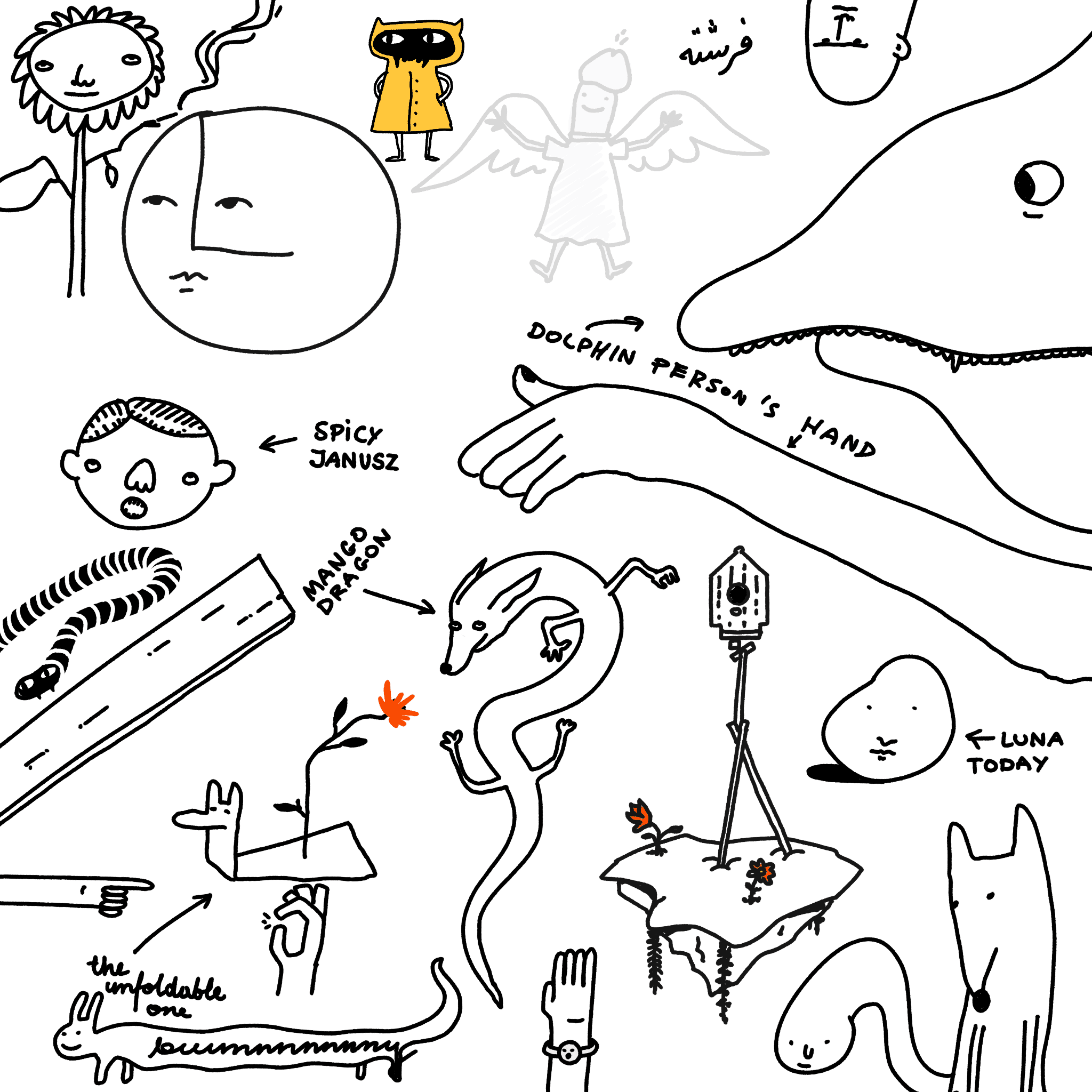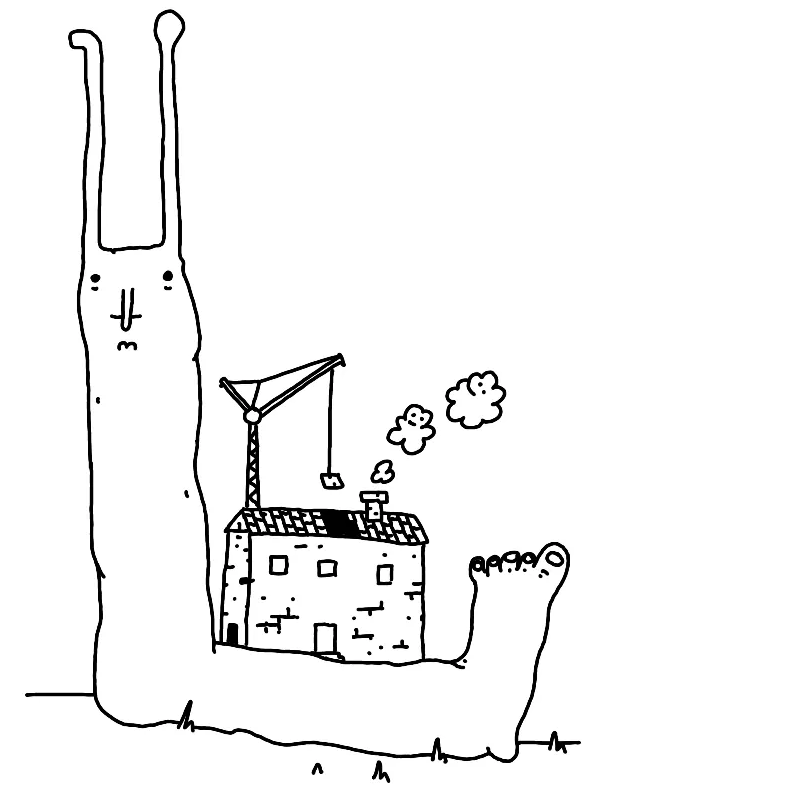
I'm writing this post as a reminder to myself.
Short version
By sharing unfinished work:
- You're much more likely to receive useful feedback
- You will save a ton of the most precious resource you have (time)
- You will fulfil a basic human need
Slightly longer version
By sharing unfinished work:
You're much more likely to receive useful feedback.
People are kind. And, deep down, they want you to feel good about your work (partly because it makes them feel good.) If you give them an object that looks finished, they might be afraid to break it!
Scrappy, messy work is like a sandbox. It's an invitation to play. When people are not afraid to break your precious toy, they're more likely to experiment with it. They might even suggest new ways of playing with it! Give people toys, we need more toys.
This is a trick used often in iterative design methodologies (e.g. Human-centred design), and I imagine a part of the reason why tools like Balsamiq or excalidraw are popular.
Counter-example
In my experience, people represented by the cliché Hackernews comment are an exception to the rule and a minority small enough that focusing on them is (generally) a distraction. How to identify useful feedback?
It saves your time.
Your time is the most valuable thing you have. It's much easier and cheaper to get feedback at this stage. What's the point of spending several days on a project just to learn that your users don't understand or care about the idea?
If you're building for an audience larger than 1 (you), erring on the side of illconceived caution generally has the opposite of the desired effect: you're more likely to set yourself up for failure (and make it more expensive.)
I noticed that the longer I postpone sharing my work, the more anxious I get. It makes perfect sense: coding instead of sharing feels like work, it makes me feel like I have control, but more often than not it's a form of self sabotage. It's a form of procrastination and procrastination is an avoidance mechanism. If this paragraph resonated with you, you might want to check out my longer article: Hummingbirds are Evil! Procrastination, Laziness and Play.
Deep down, at a very basic level we need to feel recognised.
This is something that comes up very often during my Say Hi calls and is of particular importance to me. We need to see that our actions don't exist in a vacuum, that our actions impact people. I'm not talking about extrinsic motivation or a sense of self-worth, but something much more simple than that: we are social creatures, not cats. We need social contact almost just as much as we need food or water.
A carpenter or cleaner will see both the physical results of their work and the faces of the people interacting with it. Many software engineers or designers work on projects they rarely use, for people they'll never see. I believe that this is our occupational hazard as much as losing fingers was to my dad, or back pain/dermatitis to my mom.
- a means of achieving market fit
- a requirement for a healthy, happy team
Short feedback loops are more than a means of achieving market fit, narrowing down the user need. They also help us get out of our head, see that we're making progress, make our work feel real. In my opinion, this is something that outstanding team leads do.
You're unlikely to regret it.
I rarely regret sharing my experiments sooner. Come to think of it, I never do! Generally the response is inversely proportional to the time spent on them. That's because the longer I work on something in isolation, the more likely I am to spend too much time in my own head and focus on the parts that people neither need, nor care about.
Plus, sharing and making myself somewhat vulnerable this way does get easier with time. Here's an example. I've been delaying sharing a complete list of my personal work for about 10 years. 10 years. 10 years! What the fuck! The week when I added a Projects page to my main site felt horrible. I couldn't sleep, I'd cry, I'd stare at my computer screen for hours and get nothing done. From the outside, there's nothing objectively difficult about this (perhaps besides debugging .njk templates). It should be fun. It should be an excuse to celebrate. I've shown my work work to 1000s people through pitches on stage, video calls, client meetings. I'm an adult! The truth is that after a decade of avoiding a once simple problem, it grew to a size where I just couldn't conceptualise dealing with it.
Perhaps to some of the people reading this, this sounds silly, but on the off chance this resonates with you, know that there's always hope, unless procrastination becomes a competitive sport, in which case – don't fuck with me, you'll have some tough competition to deal with.
Let people play with your toys. Bless your mess!
Counter-argument: finding space to work alone
 Did you enjoy reading this article? Consider
Did you enjoy reading this article? Consider 
